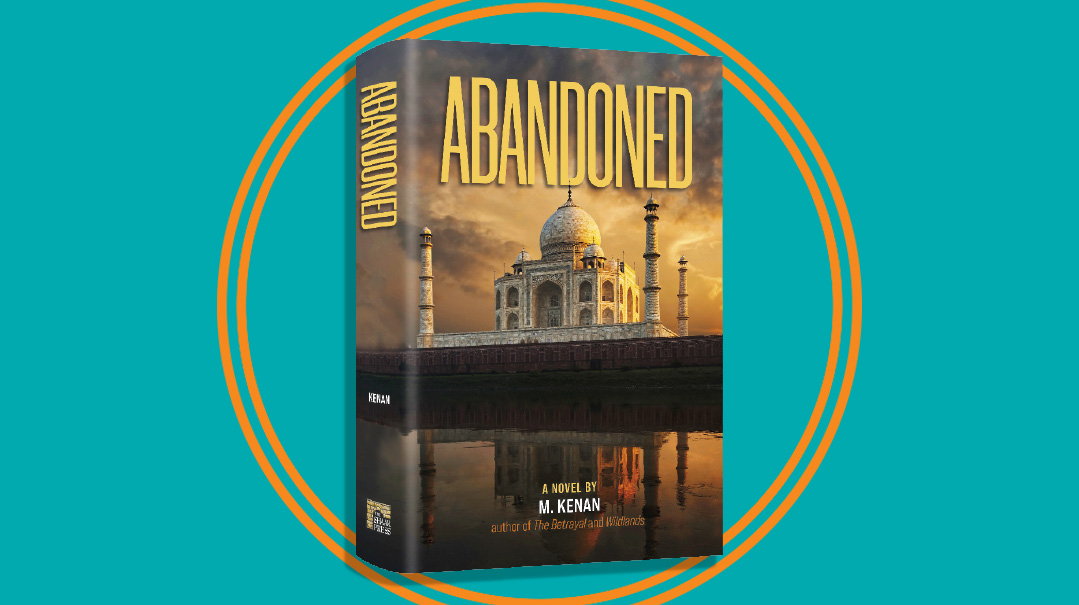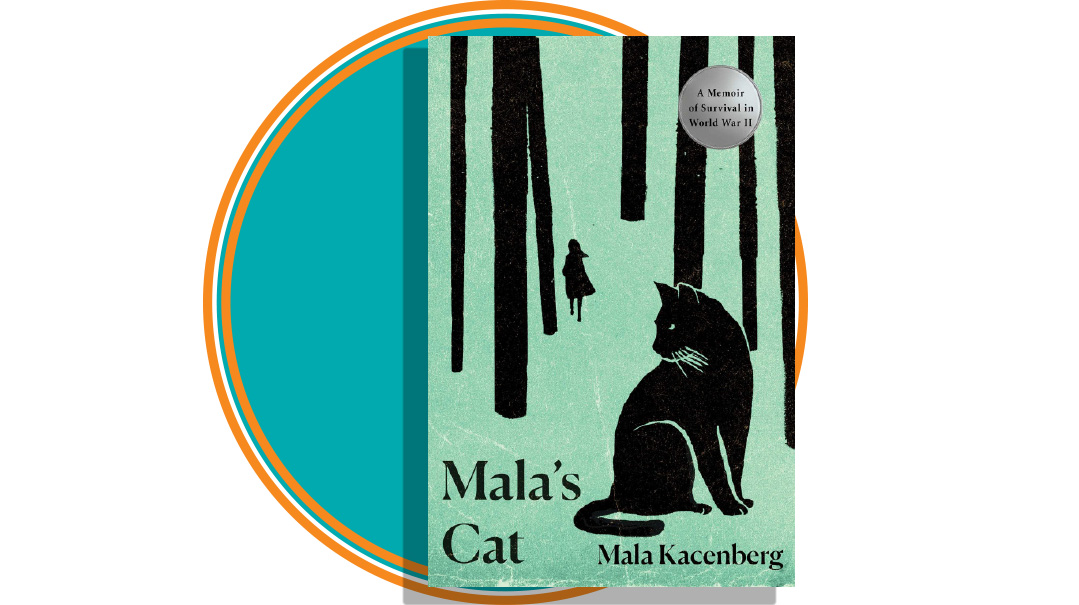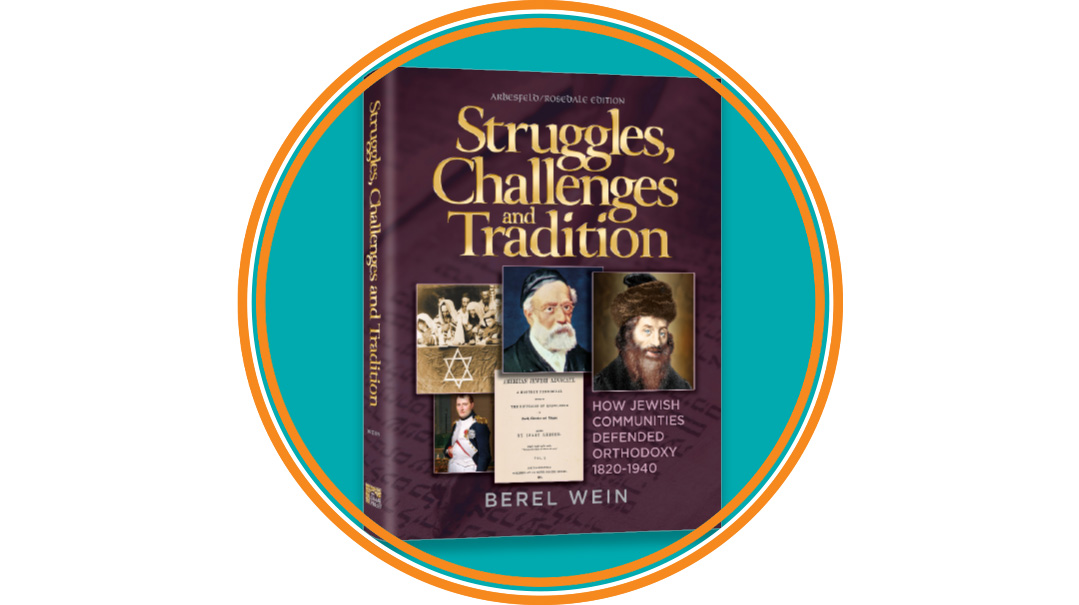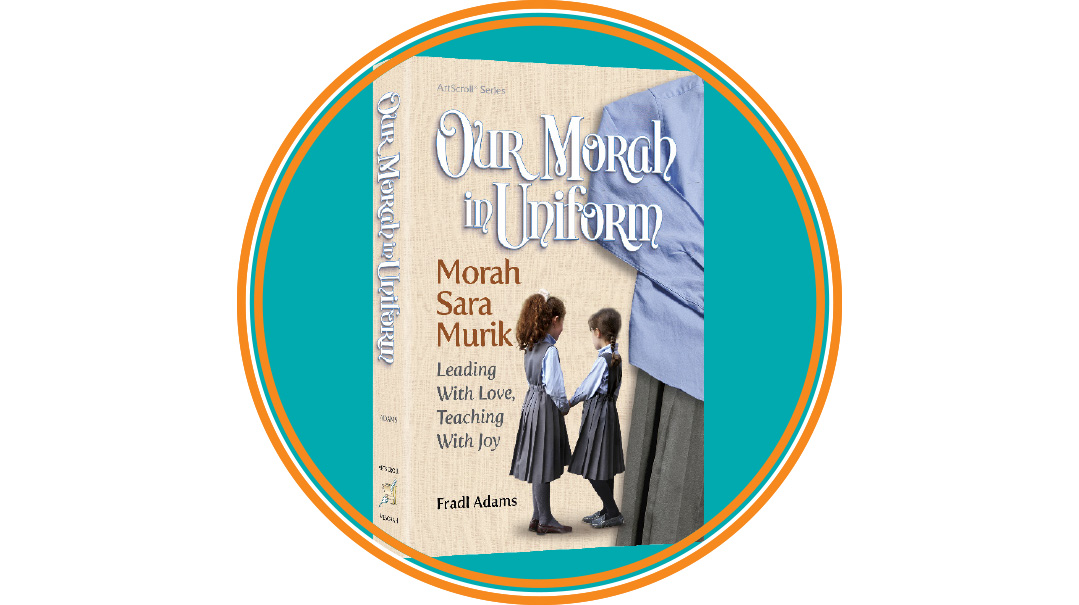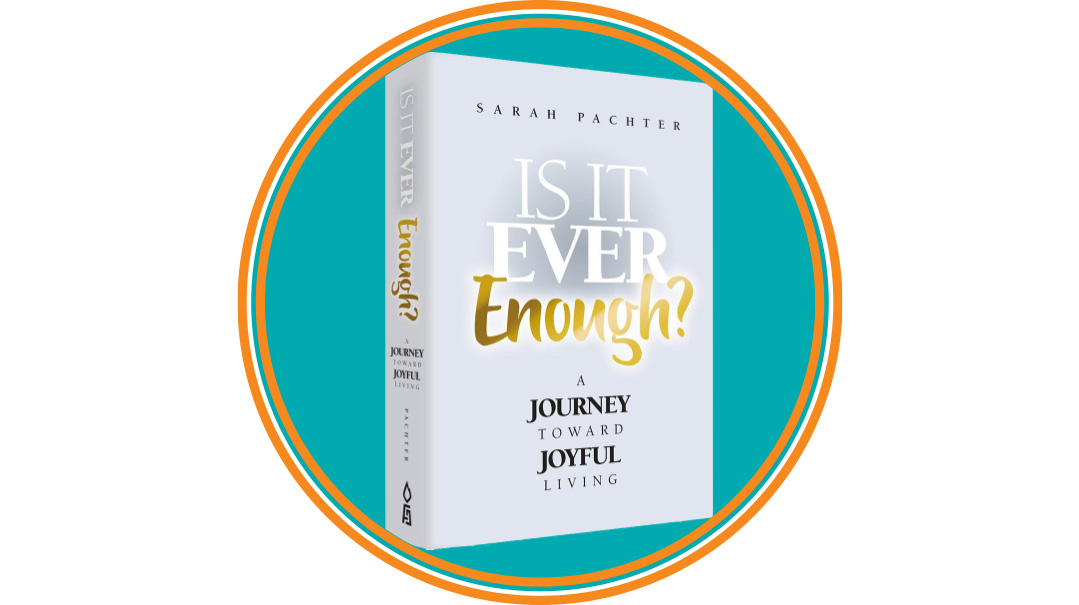Yearning to Return
| September 25, 2019It’s only once you’re mature and important and special — daughter of the King! — that you understand the shame of being a sinner
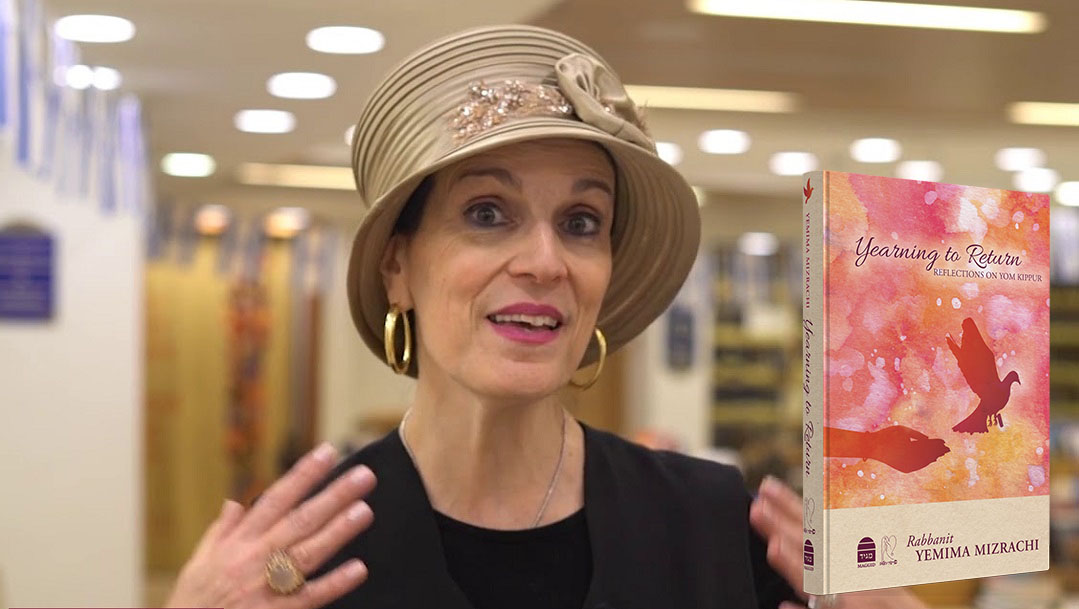
Book: Yearning to Return
Author: Rabbanit Yemima Mizrachi
Publisher: Maggid Books (an imprint of Koren Publishers)
Why Yom Kippur
I
’ve written a book on Purim, and one about Tu B’Shevat, and we’re working on one about Pesach and another about Tishah B’Av. But of course, Yom Kippur is a highlight. Yom Kippur is the one day of the year that can change your life. You can bring yourself to places you have never dreamed of. When Hashem gives us human beings the capacity to influence our year and change our mazel in this way, how can I stop myself from sharing knowledge about this opportunity with other women?
This Book Was Born…
When I noticed how many people struggle with the capacity to say “I’m sorry” and to forgive others. I saw that when people do bring themselves to forgiveness, their mazel opens up. They merit blessing, they become happy — they become close to each other.
We see conflict and quarrels and machloket around us; Yom Kippur tells us “forgive and be cleansed.” Actually, reconciliation with others comes before you approach Hakadosh Baruch Hu. The pasuk says “Lifnei Hashem, titharu — Before coming to G-d, purify yourselves from quarrels and sanctify your relationships with others.”
Whenever I discuss Yom Kippur and the power of starting anew in my shiurim, you can feel the vibe of closeness and forgiveness and love for each other among the women in the room.
What a woman can do during Aseret Yemei Teshuvah to change the way she experiences Yom Kippur
The Ari Hakadosh writes that there’s something mystical about the Aseret Yemei Teshuvah, something that cannot be logically explained. During this time, you’ll meet people from your past and remember that you owe them money. You’ll bump into the librarian to whom you never returned that book borrowed years ago. Hashem will present you with opportunities to repent for sins you’ve forgotten and repay neglected debts, because Hashem’s presence is so close that you cannot miss it. He wants to help you do teshuvah — now.
As well as repenting and making up with people, another great piece of advice is to gather together with other Jews. The Hebrew word tzibbur, community, has the same gematria as rachamim, mercy. Gatherings are very auspicious at this time, whether it’s joining a big crowd for Selichot at the Kotel or getting together with your local Tehillim group. Get together with as many other Jews as you can, because when Hashem sees you as part of His nation this unleashes His rachamim.
The way Rosh Hashanah leads into Yom Kippur
Rosh Hashanah has nothing to do with sins. Rosh Hashanah is the day we crown Hakadosh Baruch Hu as our King. Once He is your King, you are His princess. We dress well on this day, make our homes look as beautiful as a palace, and cook special food.
Once you are a princess in a palace, something is born within you.
That something is shame. Shame was born on Rosh Hashanah, when Adam and Chava first felt shame after their sin.
Shame is the sign of a grown up. Babies and young children aren’t ashamed. It’s only once you’re mature and important and special — daughter of the King! — that you understand the shame of being a sinner.
On Yom Kippur we say “Ashamnu,” “Bagadnu”— we have betrayed our essence, our exalted character as royal women. You can only say this when you’re certain you belong in the palace.
The sources behind this book
That’s difficult to answer. My father, Reb Eli Rothschild z”l, taught us to open every sefer we saw, whether Ashkenazi or Sephardi, mussar or on parashat hashavuah. I learned from the seforim of the Baal Shem Tov, Rav Shlome Wolbe, the Ben Ish Chai, Rav Levi Yitzchok of Berditchev, Rav Yitzchok Hutner, Rav Yecheskel Levenstein, the Sfat Emet, Rav Dessler, and many, many other tzaddikim. I am forever grateful to my Abba who told me not to be scared, but to open a sefer and try to read and understand it. I keep davening that I should be zocheh to learn and teach, observe, do, and fulfill the words of Torah.
Teshuvah Challenges
Women sometime think that nursing a grudge can bring them comfort. They won’t let go of the pain of having been hurt. Nekamah — revenge, and nechamah — comfort, sound very similar in Hebrew. People think that when they don’t surrender and forgive, the grudge will comfort them.
The opposite is true.
Yosef Hatzaddik endured so much pain, yet when his brothers apologized and begged forgiveness, he said, “It wasn’t you. Hashem sent me here for the good of the world.” Your pain was also sent by Hashem for your ultimate good. Let go and forgive the one who inflicted it.
The words that Yosef said are “Ki lemichya shelachani Elokim — Elokim sent me lemichya.” Lemichya is the same letters as mechilah, forgiveness, and Yosef’s name has the same letters as piyus, reconciliation.
You may think that nothing changes in your life when you forgive, but you change. You become a forgiving person, a softer person, and that is what Hashem wanted — from Yosef and from you.
One key concept from Yearning to Return
A core idea is: life is a long story.
You cannot forgive someone by saying that what was done to you was good when it wasn’t. Yosef’s brother’s sold him, and that was bad. Yet, as time went on and the story lengthened, you can see why it had to happen and that it happened for good reason. Don’t say the bad was good, say it was for the good.
Be patient. Yom Kippur itself has different stages. It has the evening of Kol Nidrei, then there is Shacharit, Mussaf, Minchah, and only then is Ne’ilah. Let the time soften you, let the procedure of mechilah happen to you. Do not expect the answer right now.
That’s why the Hebrew title of this book is Mechakah L’Teshuvah — waiting, yearning for an answer.
For those who are completely taken up with caring for children, spouse, or parents on Yom Kippur…
The biggest teshuvah is being with your children, with your husband or parents if they need you.
The actual word “teshuvah” is written only twice in the Tanach. It’s used with reference to Shmuel Hanavi; the pasuk says “Uteshuvato haramatah ki sham beito — he returned to Ramah, for his house was there.” Shmuel was a great navi and judge, righteous, busy, and important, but once a year — “biteshuvat hashanah” — when the year repeats itself, he went back to his Ima, Chanah.
Because he knew that all he had acquired was because of her tears, her mesirut nefesh and prayers, and when everyone else was in the synagogue, he was with his mother.
Rav Levi Yitzchak of Berditchev, too, spent time comforting and caring for others while everyone stood in the Kol Nidrei prayer.
Who this book is for
This book is for all women.
When I travel to address different audiences, I often get warned, “Don’t speak like this there, because they are chassidish,” or “Don’t speak about emunah because they have low levels of faith,” or “Don’t make your jokes because they are litvish.”
But I always speak the very same way, because women are women are women. We all have the same holy souls, and we all want the same thing, and these words can penetrate.
How to share the power of Yom Kippur with our children…
The way to share the feeling of Yom Kippur with your children is by sharing it with yourself.
The pasuk promises, “Umal Hashem Elokecha et levavecha ve’et levav zaracha, Hashem will circumcise your hearts and your children’s.” Your children will be moved when they observe you spending Yom Kippur with holy kavanah. Your little son sees the tears on your face, and your daughter hears your tefillah, and the impressions are inscribed on their pure hearts. You don’t need to teach Yom Kippur, just experience it sincerely in your heart, and it will penetrate their hearts.
What a woman who feels she’s spiritually blocked can do
Yom Kippur is one day when you won’t have to cope with this feeling, because the day will awaken emotion within you.
There are 365 days in the year, and the word HaSatan has a gematria of 364. For 364 days, he dogs our steps, but on the 365th day, Yom Kippur, he has no control over us. Everyone’s heart opens, even those who are very far away. Ki bayom hazeh, yechaper aleichem, the day itself makes you repent.
“In the final days and hours leading up to Yom Kippur, we need to understand that everything matters. Every little detail is significant. We cannot move through our lives like sleepwalkers. We must show G-d that it is worth it for Him to give us the gift of life, because we use it to the fullest. We must show G-d how much we enjoy our lives — this house, these children, this husband, this country.”
p. 51
“When we feel weakened by the fast, we should pick up the book of psalms or leave the synagogue to speak our own words of prayer. The hunger and weakness will pass, because on Yom Kippur we are nourished by voices and sustained by prayers.”
p. 258
“Stop running to ask forgiveness from the people you like and the people who like you; they’ve already forgiven you, and most likely there is nothing to forgive. Instead, we must make peace with those we really don’t get along with. It’s easy to apologize to a close friend. The true test is to apologize to the neighbour we can’t stand, and forgive her.”
p. 168
(Originally featured in Family First Issue 661)
Oops! We could not locate your form.







